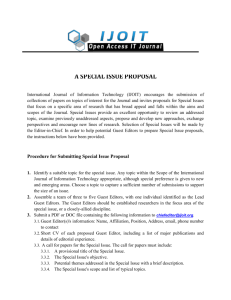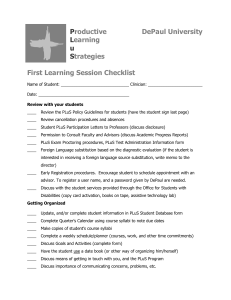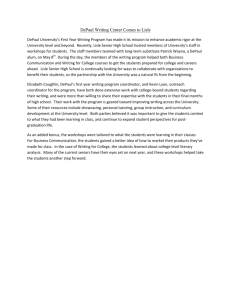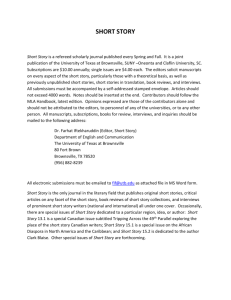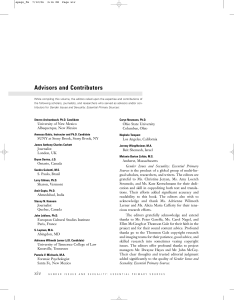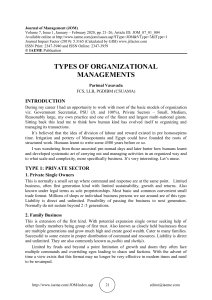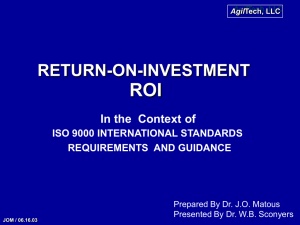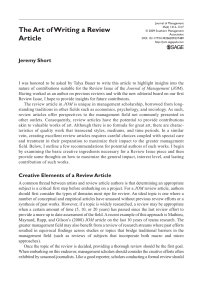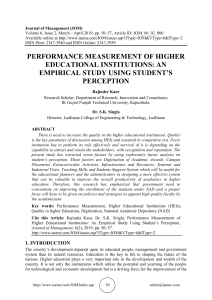JOM Special Issue
advertisement
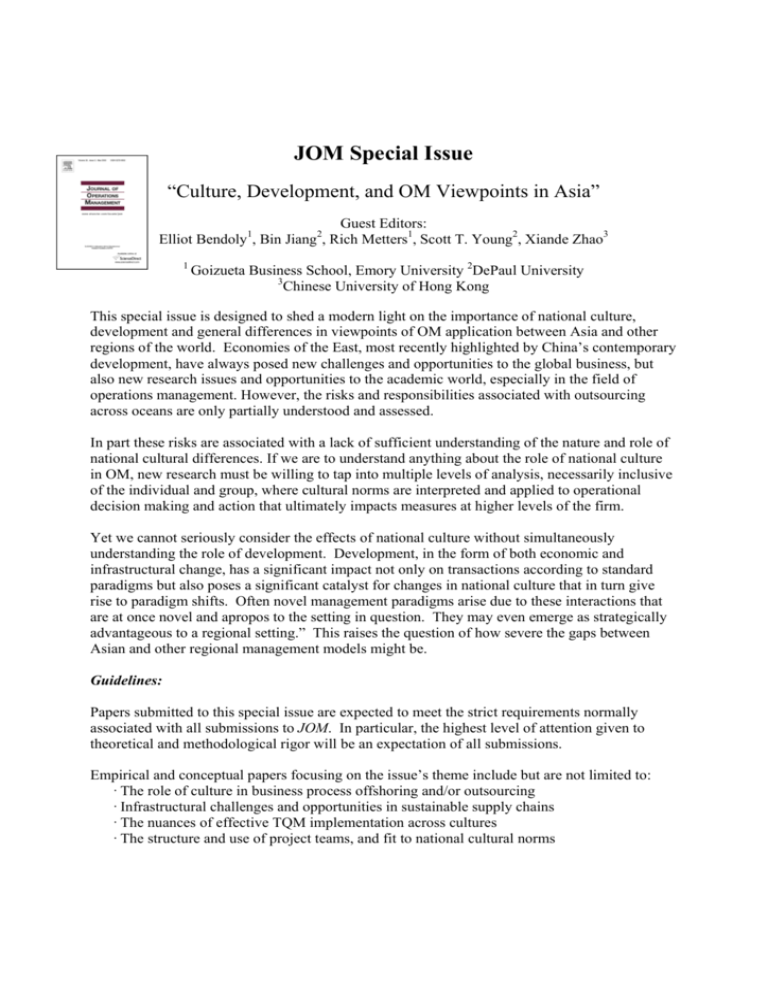
JOM Special Issue “Culture, Development, and OM Viewpoints in Asia” Guest Editors: Elliot Bendoly1, Bin Jiang2, Rich Metters1, Scott T. Young2, Xiande Zhao3 1 Goizueta Business School, Emory University 2DePaul University 3 Chinese University of Hong Kong This special issue is designed to shed a modern light on the importance of national culture, development and general differences in viewpoints of OM application between Asia and other regions of the world. Economies of the East, most recently highlighted by China’s contemporary development, have always posed new challenges and opportunities to the global business, but also new research issues and opportunities to the academic world, especially in the field of operations management. However, the risks and responsibilities associated with outsourcing across oceans are only partially understood and assessed. In part these risks are associated with a lack of sufficient understanding of the nature and role of national cultural differences. If we are to understand anything about the role of national culture in OM, new research must be willing to tap into multiple levels of analysis, necessarily inclusive of the individual and group, where cultural norms are interpreted and applied to operational decision making and action that ultimately impacts measures at higher levels of the firm. Yet we cannot seriously consider the effects of national culture without simultaneously understanding the role of development. Development, in the form of both economic and infrastructural change, has a significant impact not only on transactions according to standard paradigms but also poses a significant catalyst for changes in national culture that in turn give rise to paradigm shifts. Often novel management paradigms arise due to these interactions that are at once novel and apropos to the setting in question. They may even emerge as strategically advantageous to a regional setting.” This raises the question of how severe the gaps between Asian and other regional management models might be. Guidelines: Papers submitted to this special issue are expected to meet the strict requirements normally associated with all submissions to JOM. In particular, the highest level of attention given to theoretical and methodological rigor will be an expectation of all submissions. Empirical and conceptual papers focusing on the issue’s theme include but are not limited to: · The role of culture in business process offshoring and/or outsourcing · Infrastructural challenges and opportunities in sustainable supply chains · The nuances of effective TQM implementation across cultures · The structure and use of project teams, and fit to national cultural norms · Knowledge (copyright, patent, special know-how) management across Asia and other regions · Supplier/vendor selection, negotiation, and corporation differences · Differences in power and relationship management in supply chains connecting Asia with other regions · Innovation and technology collaboration and management differences · Calibration of traditional analytical model parameters: E.g.1. What is the cost of a lost sale in different cultures? E.g.2. What is the cost of waiting different in different countries? No methodological restrictions are being placed on the works submitted to this special issue, however given the orientation of the issue, works that involve the use of multiple methods (e.g. Ethnography coupled with survey methods; Cases coupled with laboratory methods; Exploratory data collection coupled with action studies, etc.) are to be encouraged. Submission deadline: January 1, 2009 All manuscripts must conform to JOM requirements. Submitted articles will be reviewed by the guest editors for suitability before being sent to referees and/or guest associate editors. Decisions regarding acceptance of articles will be made within three review cycles. Reviews will be processed as expeditiously as possible. The initial review should take less than 3 months, subsequent reviews are expected to be shorter. Please submit manuscripts to either of the following editors (e-mailed submissions in MS Word or PDF formats, again in accordance with JOM guidelines, are preferred): Dr. Elliot Bendoly Information Systems and Operations Management Goizueta Business School 1300 Clifton Road Atlanta, GA 30307 Elliot_Bendoly@bus.emory.edu Dr. Bin Jiang College of Commerce Depaul University 1 E. Jackson Blvd. DePaul Center 7027 Chicago, IL 60604 BJIANG@depaul.edu
